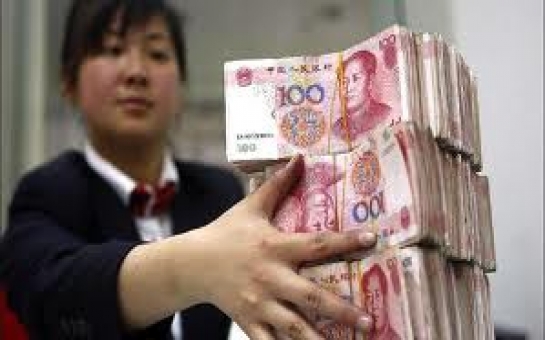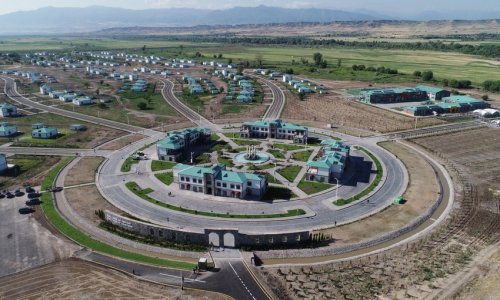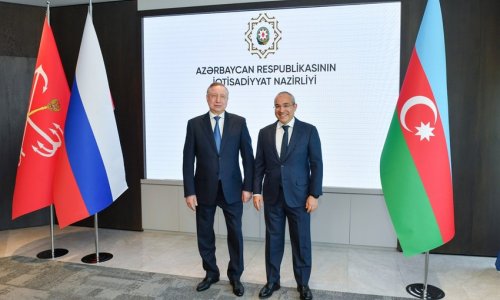Azerbaijan’s sovereign wealth fund plans to invest up to $1.8bn in renminbi this year, in what would be one of the largest investments in the Chinese currency to be made public as it rapidly moves towards reserve currency status.
Shahmar Movsumov, chief executive of the $37bn State Oil Fund of Azerbaijan (Sofaz), told the Financial Times that the fund was applying for permission from Chinese regulators to access renminbi assets and hoped to start investing in the currency by the end of the year.
“It’s one of the currencies that are becoming important, so why not invest in renminbi?” he said. “We are in the process of getting all the necessary preparations.”
The move highlights the growing internationalisation of the renminbi as Beijing opens up greater access to the currency. According to SWIFT, the renminbi was the seventh-most widely used currency for international payments in April with 1.4 per cent of transfers, compared to 0.6 per cent in January 2013.
Central banks and sovereign wealth funds hold $11.7tn in assets, according to International Monetary Fund data, making them enormously influential in global markets. But the large majority of declared holdings are in dollars and euros, with Standard Chartered estimating that they hold just 300bn renminbi ($48bn), less than 0.5 per cent of total reserves.
While analysts estimate that many central banks may have started to buy small quantities of renminbi in recent years, only a handful – including Australia, Chile and Nigeria – have publicly confirmed the move.
The Reserve Bank of Australia plans to put 5 per cent of its reserves in renminbi bonds, while Nigeria’s central bank currently holds around 10 per cent of its assets in the currency. Central banks in Japan and Malaysia also hold renminbi assets.
Sofaz decided at the end of last year to increase its exposure to currencies other than the dollar, euro and pound from 5 per cent to 10 per cent, Mr Movsumov said. The fund has yet to invest about 5 per cent, or $1.8bn, of its allocation to “other currencies”, he said. “Whatever we will have spare by the end of this year we will allocate to renminbi.”
Asked which renminbi assets he intended to invest in, he said the fund was “open to everything”.
Sofaz, which with $36.6bn under management is the world’s 28th-largest SWF, is one of several post-Soviet sovereign funds to enjoy rapid growth thanks to rising oil prices in the past decade. Kazakhstan’s oil fund has assets of $71bn while the Russian equivalent holds $87bn.
The move to invest in renminbi is part of the Azerbaijani fund’s move to increase its exposure to riskier assets, as it diversifies away from its traditional holdings of dollar and euro fixed income.
Since 2012, Sofaz has moved into real estate, buying properties in London, Paris, Moscow and Seoul, and has also started investing in public and private equity and gold.
Sovereign-backed wealth funds are now among the most important investors in China’s public markets.
Norway’s oil fund, the Kuwait Investment Authority, and Singapore’s Temasek hold three of the largest investment quotas, which allow them to buy renminbi-denominated assets in China. Qatar and Abu Dhabi also have sizeable quotas, while some funds have also mandated local managers to invest in renminbi debt.
Mr Movsumov said the prospect of a rise in interest rates in the US and Europe had made the fund more cautious about investing in bonds. “There is no reward for taking a long term position in bonds today. As soon as interest rates start going up we will see serious hikes in long-term interest rates.”
The same trend has led Sofaz to put its gold-buying programme on hold, he said. The fund, which bought 30 tonnes of gold in 2012-2013, still has to invest a further 2 per cent of its assets – or $750m – in the metal to reach its ideal allocation.
“Expectations are that if economies pick up there will be more decline in the price of gold,” Mr Movsumov said. “We’ll wait a little bit.”
(Financial Times)
Bakudaily.az











